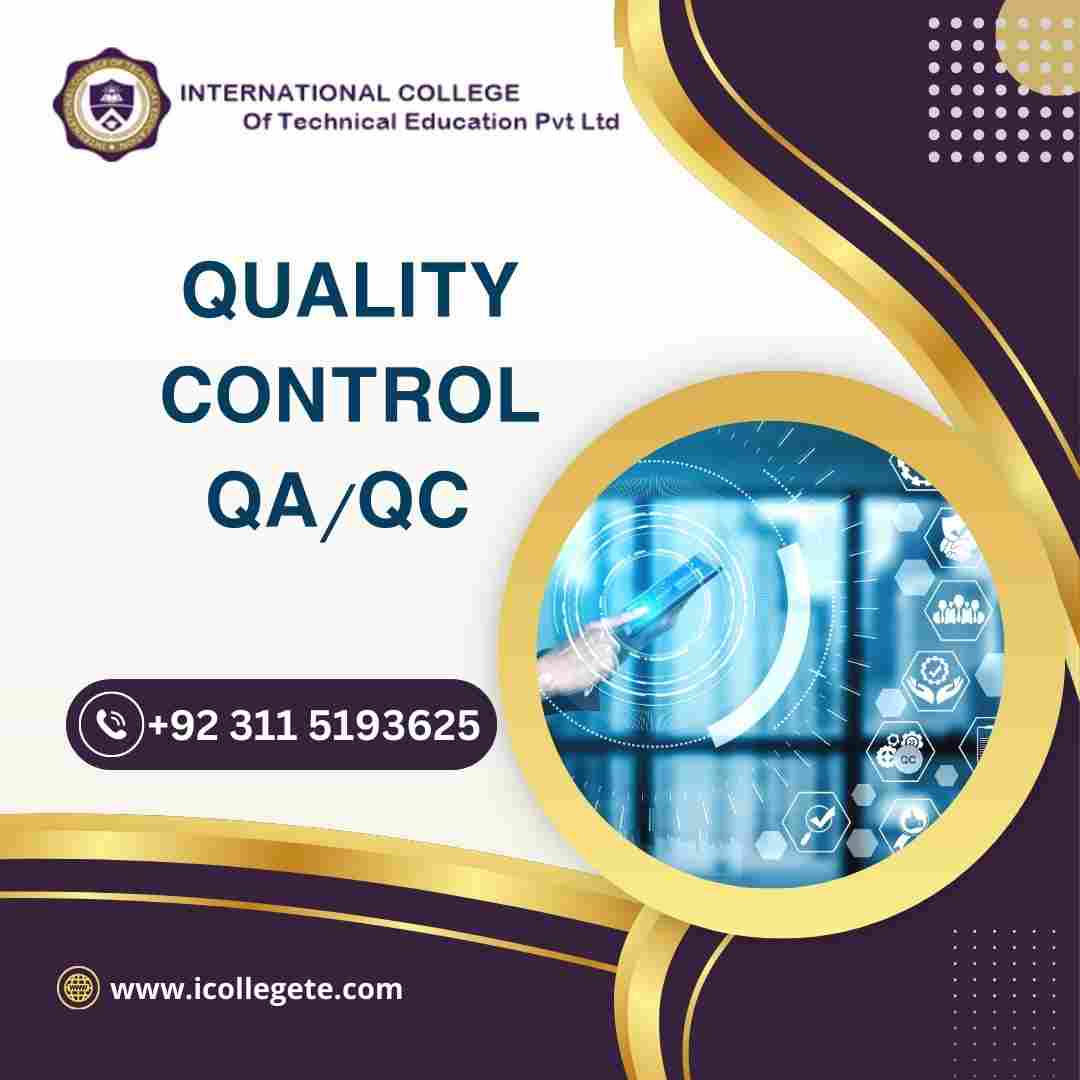
quality control qa/qc course in Peshawar
In a world that thrives on precision and perfection, the field of Quality Control (QA/QC) stands as a cornerstone in ensuring products and services meet the highest standards. As industries evolve, so does the need for skilled professionals adept at navigating the intricate landscape of quality management. This is where a Quality Control QA/QC course comes into play, offering a comprehensive journey into the realms of quality assurance and quality control.
Course Benefits:
Embarking on a Quality Control QA/QC course opens up a myriad of benefits for individuals seeking to carve a niche in industries ranging from manufacturing and construction to healthcare and technology. Some of the key advantages include:
Industry Relevance: Acquire skills that are directly applicable to various industries, making you an invaluable asset in the job market.
Career Advancement: Boost your career prospects by gaining expertise in quality management, positioning yourself as a go-to professional for maintaining and improving product and service quality.
Global Recognition: Many QA/QC courses are designed to align with international standards, providing a globally recognized qualification that transcends geographical boundaries.
Problem-Solving Skills: Develop a keen eye for identifying and resolving quality issues, contributing to the overall efficiency and success of your organization.
Learning Outcomes:
A well-structured Quality Control QA/QC course is designed to equip learners with a robust skill set. Key learning outcomes include:
Understanding Quality Concepts: Grasp fundamental concepts of quality, including the importance of standards, processes, and continuous improvement.
Quality Assurance Techniques: Learn the principles and practices of quality assurance, ensuring products and services meet predefined criteria.
Quality Control Methods: Explore various quality control methodologies to detect and rectify deviations from established standards.
Documentation and Compliance: Understand the importance of documentation in quality control, including compliance with industry regulations and standards.
Study Units:
The course curriculum typically covers a range of essential study units:
Introduction to Quality Control
Quality Management Systems (QMS)
Statistical Process Control (SPC)
Root Cause Analysis
Quality Auditing
Risk Management in Quality Control
Who Is This Course For:
The Quality Control QA/QC course is tailor-made for:
Professionals: Already working in quality management, seeking to enhance their skills and advance their careers.
Graduates: Recent graduates looking to specialize in quality management to stand out in a competitive job market.
Industry Enthusiasts: Individuals passionate about maintaining high standards in products and services, regardless of their current career stage.
Future Progression:
Upon successful completion of a Quality Control QA/QC course, a plethora of opportunities await. Graduates can explore roles such as:
Quality Assurance Specialist/Manager
Quality Control Inspector
Quality Analyst
Compliance Officer
Process Improvement Consultant
Furthermore, this course serves as a solid foundation for those interested in pursuing advanced certifications, such as Six Sigma or Project Management Professional (PMP), opening doors to even more lucrative career paths.
In conclusion, investing in a Quality Control QA/QC course is not just an educational choice; it’s a strategic career move. By mastering the intricacies of quality management, individuals can contribute to building robust, reliable systems that drive success in an ever-evolving professional landscape.